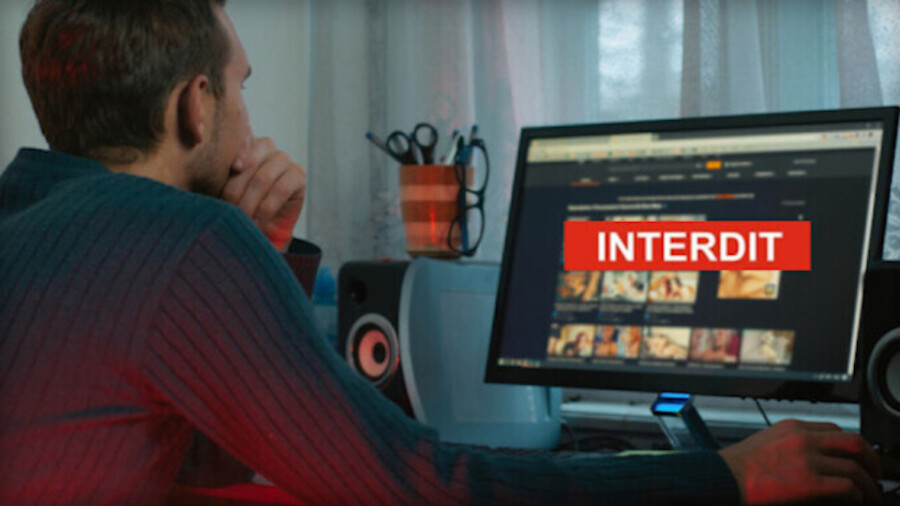
PARIS — Anonymous sources leaked the alleged plans of France’s Conseil Supérieur de l’Audiovisuel, a regulatory government body similar to the American FCC, to compel adult sites “before the end of the year” to immediately implement a form of age verification under penalty of being deplatformed by internet service providers.
According to the same sources, the CSA is planning to effect the verification not through government IDs but through collection of credit card information that users intending to watch any adult content — however it is defined by the French government or their officers — should be forced to provide.
The information was originally leaked to reporter Sébastien Dumoulin of online news site Les Echos, which was then disseminated by other press outlets.
Two weeks ago, as XBIZ reported, WGCZ — the parent company of tube site XVideos and several other international adult companies — hired prestigious international law firm top international business law firm Quinn Emanuel Urquhart & Sullivan, as well as a firm linked to powerful French communications and marketing conglomerate Havas, to lobby government regulators to limit the scope of proposed sweeping regulations on adult content.
Les Echos’ reporter Dumoulin prefaced his announcement of the government’s plans by calling the current status quo “manifestly illegal,” a loaded assessment that sheds some light on his position on Age Verification.
Dumoulin claims that according to his sources, the CSA “will be sending formal notices to certain porn sites before the end of the year. They will then have two weeks to comply with the [July 2020 Age Verification] law.”
If this is still not the case, the president of the CSA can ask the president of the Judicial Court of Paris to order the blocking of the targeted sites by internet service providers.
“Clearly, the judiciary may require telecom operators to prevent French internet users from accessing porn sites that are too easily searchable by minors,” Dumoulin gloated.
No Blanket Free Speech Protection
France, like other European nations, does not have blanket Free Speech protections similar to those provided by the U.S. Constitution’s First Amendment. Moreover, the adult content community appears divided on the Age Verification issue. Large production companies with lucrative paysites and broadcast deals such as Dorcel have collaborated with the Macron government in drafting policies in favor of of A.V. implementation, while tube site owners have fought against these efforts.
Back in March, WGCZ began circulating a survey gathering public opinion about privacy concerns surrounding a new age verification requirement imposed by the French parliament in July 2020, while parliamentary work was being disrupted by the COVID pandemic.
“Last summer,” the introduction to the survey began, “a law about domestic violence was amended with two articles concerning the distribution of pornography online. It imposes age verification on the users.”
The document also pointed out that fewer than 10% of representatives were present during the vote and that none of the legislators were asked about the law’s consequences or the method of age verification to be employed.
“If you ask yourself, as we do, what does pornography have to do with domestic violence, you’d be given this explanation: people can be induced to see and then reproduce ‘violent’ sexual practices seen online,” the WGCZ-sponsored statement noted.
The French law has been delayed in its implementation because it requires approval from the EU.
Private Groups Seeking to Accelerate the Decision
As Les Echos’ report points out, private French organizations have been attempting to accelerate the issue through lawsuits, the most notable of which was a Fall complaint by French nonprofits purporting to advocate for “children’s welfare.”
The organizations e-Enfance (“e-Childhood”) and La Voix de l’Enfant (“The Voice of the Child”) assert that sites such as Pornhub, TuKif, XNXX, xHamster, XVideos, Redtube and YouPorn “make pornographic content accessible to minors and do not verify the age of those browsing or they merely make them check a box stating they are over 18,” as the groups’ lawyer, Laurent Bayon, told newspaper Le Figaro in September, when announcing a lawsuit trying to compel ISPs to block those sites in France.
The lawsuit was rejected in October in favor of the defendants, the French ISPs Orange, SFR, Bouygues Télécom, Free, Colt Technologies Services and Outre mer Télécomare.
Mandatory Credit Card Data Collection to Look at Sexual Content
Dumoulin’s article also noted that the Commission Nationale de l’Informatique et des Libertés — the government consortium that is the national arbiter of online rights — is “reluctant to the requirement to produce an identity card to connect to porn sites. On the other hand, it would be open to a solution based on a payment [credit or debit] card, with a transaction at zero euros.”
